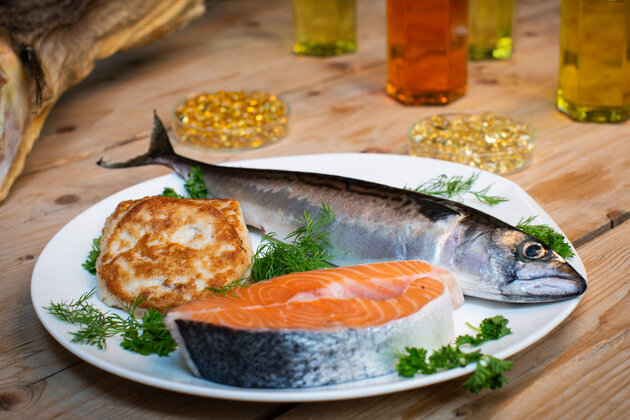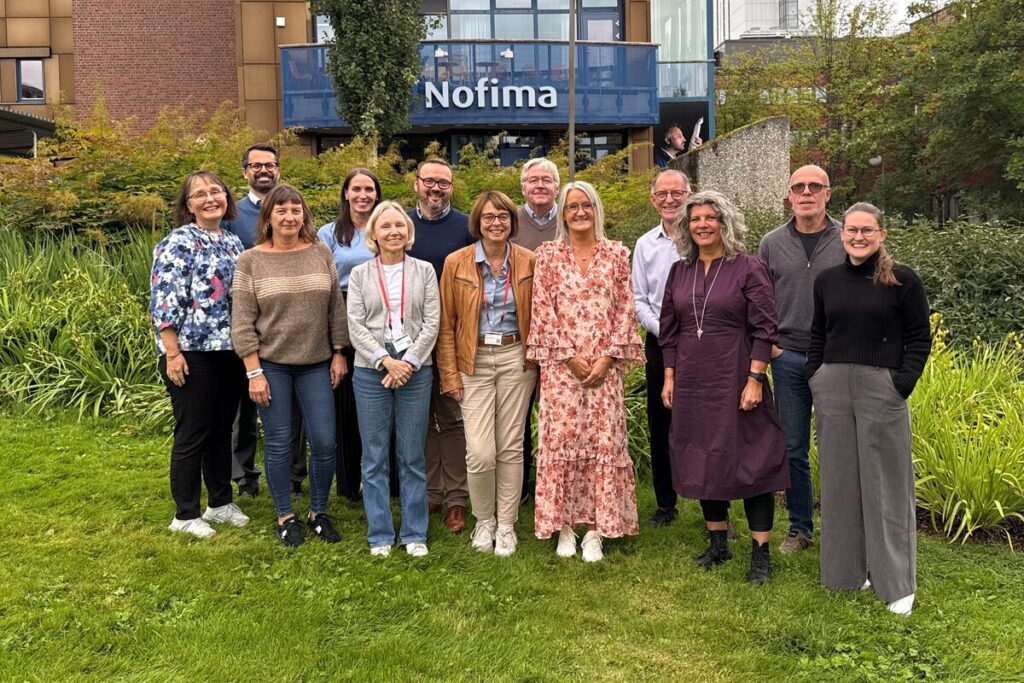The role of seafood in Norwegian food security

In this project, we aim to gain new knowledge about the role of seafood in Norwegian food security. The research will provide the basis for concrete advice to strengthen security.
Start
13. Aug 2025
End
31. Mar 2027
Funded by
The Norwegian Seafood Research Fund
Cooperation
Norwegian Defence Research Establishment, Institute of Marine Research, Institute of Transport Economics
Project Manager(s):
Other Participants:
Bent Magne Dreyer
Silje Steinsbø
Ingrid Kvalvik
Morten Sivertsvik
Thomas Nyrud
Anne-May Johansen
Background
The growing focus on food systems both in the EU and Norway has made it necessary to understand and document the role of the seafood sector. Food systems are not only a source of nutrition but also a critical component in security and self-sufficiency, especially considering the challenges faced by society today. Global warming, changes in public health, and an increasing risk landscape necessitate a holistic approach to food security. War and pandemics have revealed a number of vulnerabilities in global supply chains. This is also highlighted in the White Paper on Total Preparedness (Meld. St. 9 (2024–2025). There is a clear objective to increase the national degree of self-sufficiency in food and feed production. The government has committed to stimulating increased production of sustainable feed based on Norwegian resources, with a goal that all feed for farmed fish and livestock should come from sustainable sources by 2034.
The seafood sector has only to a limited extent been included in national plans to secure food in crisis situations. Analyses of food self-sufficiency vary widely and are marked by significant knowledge gaps. The data foundation for such analyses is insufficient.
In 2024, Norway exported 2.8 million tonnes of seafood. This equates to 38 million meals every single day. The seafood industry purchases goods and services worth NOK137 billion annually, much of which is imported. For aquaculture, feed is a critical part of purchases. In 2020, only 8% of the ingredients in salmon feed were produced in Norway.
Our extensive seafood production and significant exports make it necessary to strengthen the knowledge of how the seafood sector can be incorporated into overarching national plans for food security.
The project aims to provide comprehensive, research-based documentation that will help strengthen food security in the face of future crises.
Objectives
Compile broad, research-based documentation of the role and significance of seafood in food systems and for food security.
Sub-goals
- Document food systems in general and the role of the seafood sector in particular, both in Norway and internationally.
- Conduct vulnerability analyses for seafood systems.
- Map the seafood industry’s transport and logistics systems, organisation, vulnerabilities, and implications in the event of disruptions.
- Analyse the robustness of food systems in crisis scenarios, based on findings from vulnerability analyses and explicit requirements in the call for proposals.
- Provide recommendations for including seafood in Norway’s food security.

Activities
Describing the seafood system
We will provide a detailed description of food systems for seafood:
- What raw materials are used
- Where they are sourced
- Which products are produced
- Preservation and nutritional value
- Value chain organisation
- Location
- Trade structures
Vulnerability analyses of the (sea)food system
Our hypothesis is that Norwegian seafood systems are crucial for meeting the population’s nutritional needs in a crisis and, not least, in war. We will investigate what vulnerabilities exist and what negative consequences these would have in various situations.
Vulnerabilities in transport and logistics systems
Transport and logistics systems are tailored to the industry’s needs and competition situation. We will examine both normal operations and what will happen when various types of disruptions occur.
Robustness in food systems
We will study how food systems are affected by different crisis scenarios. We will also determine how the different parts of the food systems will handle crises.
Recommendations for future strengthened security
After performing analyses, we will provide recommendations on:
- How seafood can be included in Norwegian food security
- How to reduce vulnerability and increase robustness in the seafood industry
- What forms of emergency storage can strengthen the seafood industry’s ability to contribute to food security
- How research methodology can be improved to help uncover vulnerabilities and develop robustness in the seafood industry in various crisis situations
Contact:
Magnar Pedersen leads the project on behalf of Nofima.
Tel: +47 99 29 62 84
Email: magnar.pedersen@nofima.no
You can also contact:
